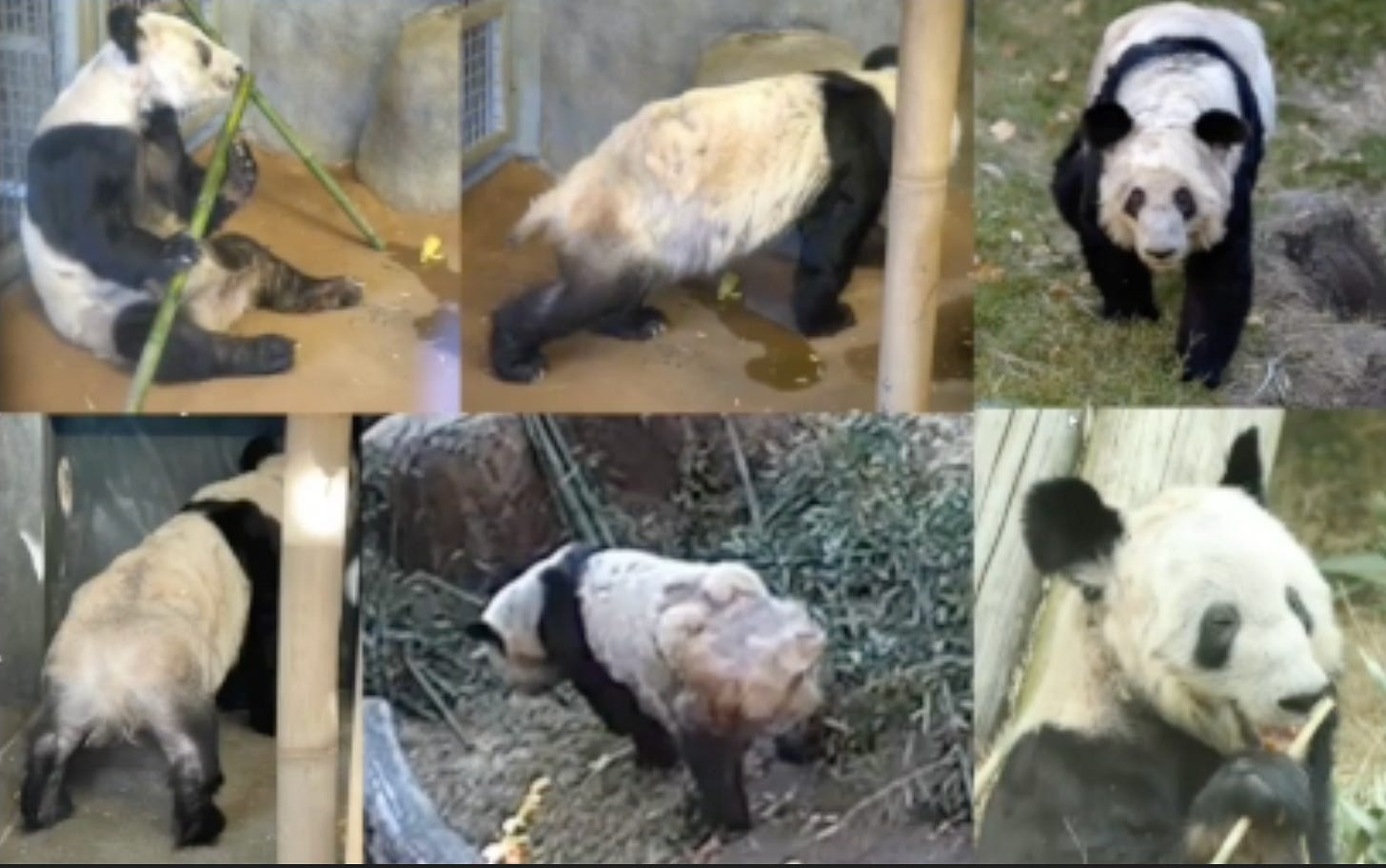Advocates Urge SF Zoo to Say No to Pandas
Why an international panda advocacy group urged the city to think twice.

At the July 20 meeting of the San Francisco Animal Welfare Commission, Brazilian advocate Taciana Santiago delivered a clear warning: San Francisco is not ready to host giant pandas.
Representing the international watchdog group Panda Voices, Santiago drew on years of monitoring pandas in zoos around the world, including the troubled case of YaYa and LeLe in Memphis. There, advocates documented malnutrition, poor bamboo, stereotypic stress behaviors, and ultimately LeLe’s death. YaYa only recovered once she returned to China.
The core issues
Diet: Pandas eat only a handful of bamboo species, fresh and seasonal. Abroad, zoos struggle to supply it—sometimes flying it in weekly. Poor diet leads to illness and stress.
Expertise: China concentrates the world’s panda-specialist vets and keepers. Problems misdiagnosed abroad often resolve quickly when animals return home.
Space: Many zoos provide small, visitor-oriented exhibits. Pandas require multiple large yards, privacy from crowds, water features, and quiet.
Costs: Loan fees average $1M per panda per year—not including bamboo, vet care, or exhibit construction.
Oversight: In China, pandas are a national treasure, with citizens quick to flag problems. Abroad, distress is often mistaken for “cute” behavior.
Santiago closed with this:
“Is San Francisco really ready to host such sensitive and costly animals without sacrificing the welfare of the ones already here?”
Pandas are beloved. But the Memphis case showed what happens when love collides with logistics. If San Francisco wants to help pandas, the evidence points to supporting habitat restoration and care in China, not building a high-cost exhibit here.
